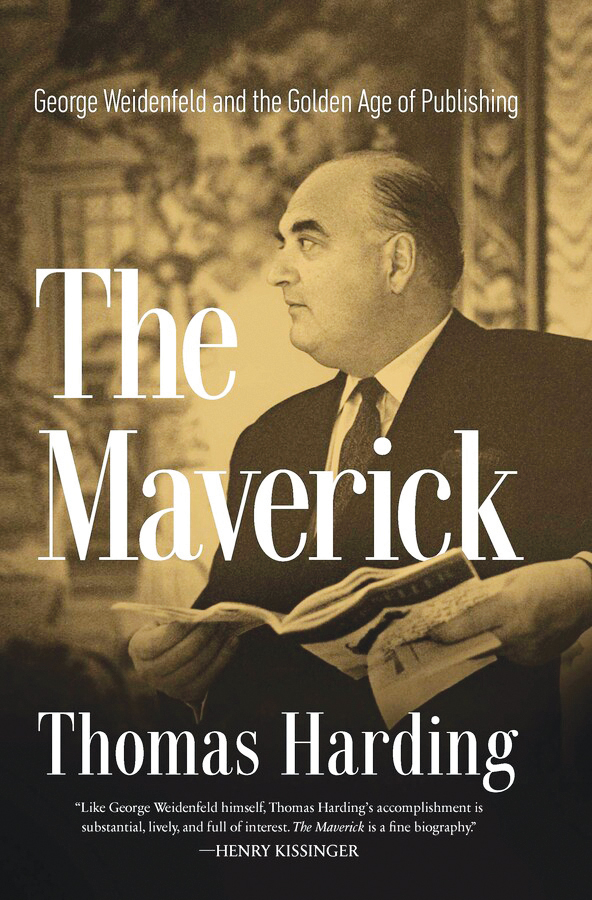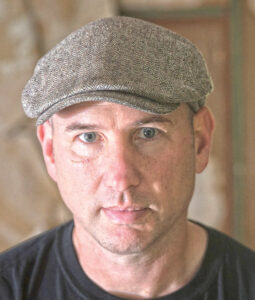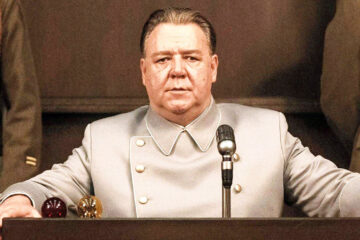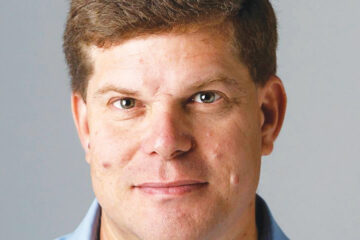From refugee to publishing world giant

By Talia Doninger, Special to The Dayton Jewish Observer
Lolita set the literary world of 1955 on fire. Controversial, provocative, and polarizing, Vladimir Nabokov’s novel was rejected by multiple publishers before George Weidenfeld took a chance on it.
Critics called it obscene, bookstores hesitated to display it. But for Weidenfeld, it was the kind of work that defined his audacious career.
He saw the tension between public outrage and literary merit as the heart of publishing’s true purpose. Lolita was more than just a bestseller — it marked a pivotal moment in the legacy of George Weidenfeld.
Thomas Harding explores Weidenfeld’s world in The Maverick, unearthing layers of the Austrian Jewish refugee in London who stood at the crossroads of art, politics, and history. Harding will talk about The Maverick via Zoom, Nov. 14 as part of the JCC Cultural Arts & Book Series.
His first glimpse into Weidenfeld’s life came through books Weidenfeld had published including I Am Malala, Double Helix, The White House Years by Henry Kissinger, and The Hedgehog and the Fox.
“George revolutionized the art of publishing in the 20th century, although his work wasn’t just about the books, but his life as a Jewish refugee and the lens through which he saw the world,” Harding told The Observer via a Zoom interview from his home in Florence, Italy.
Weidenfeld’s journey began in Vienna in the 1930s. As a Jewish teenager, he fled to London on the eve of World War II. He carried with him the trauma of persecution and a thirst to advocate for those who were persecuted.
“He had a sense of anxiety and fear, a trepidation of the world suddenly changing,” Harding said. “It was an inspiration for his work.”

Harding portrays scenes of Weidenfeld as he balanced the world of publishing with the shadows of his past. He hosted raucous gatherings with intellectuals; but beneath the laughter and debates was his sense of loneliness.
“Through his networking, through his parties, it was an antidote to his core sense of isolation,” Harding said.
The gatherings were a way to assert himself in a world where, no matter how successful he was, Weidenfeld was still seen as an outsider partly because of his Jewish identity.
Weidenfeld’s rise to prominence in the publishing world didn’t shield him from antisemitic tropes and accusations.
Harding said the criticism often centered on perceptions of Weidenfeld as disloyal or unreliable.
“Despite his extraordinary success, the antisemitism never went away, even to the very end,” Harding said. “He was covered extensively by the media partly because he was being laughed at.”
Harding added that though Weidenfeld fought for authors’ rights to express themselves, he was hesitant to publish works that criticized or clashed with his personal beliefs.
His commitment to philanthropy, particularly toward Israel, was one of his enduring legacies. He was deeply connected to his Jewish heritage and the survival of the Jewish people.
Weidenfeld channeled much of his wealth and influence to support Israel’s development. He cofounded the Weidenfeld Fund for Israel Studies at Oxford University and contributed to numerous initiatives to promote peace and foster understanding in the region.
“His Judaism was important to him,” Harding said. “Israel was at the center of his world.”
The JCC Cultural Arts & Book Series presents author Thomas Harding via Zoom, 7 p.m., Thursday, Nov. 14. Register for the free program here.
To read the complete November 2024 Dayton Jewish Observer, click here.





